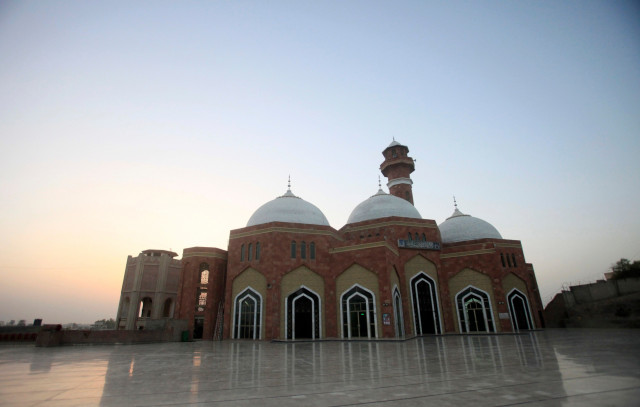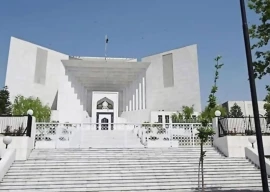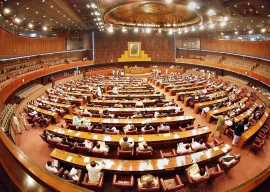
Followers of all religions co-existed peacefully in the sub-continent, especially in Sindh and Punjab, showing acceptance and tolerance towards each other. Recent incidents such as the anti-Christian riots, attacks on the Shia community and the desecration of Bhuro Bheel’s body in Badin, however, show that the tolerance taught by Sufism is largely missing today, remarked Prof Dr Jürgen Wasim Frembgen.
In his lecture on ‘Tolerance in Sufism’, a part of the Aga Khan University’s Sixth Sense Forum lecture series on Friday, Prof Frembgen highlighted various aspects of Sufism and its impact on the religions practiced in the region. Prof Frembgen, an Islamicist, anthropologist and writer, is the chief curator of the Islamic Collection at Munich State Museum of Ethnology and a professor of history of religion and Islamic culture at the Institute of Near and Middle Eastern Studies at University of Munich, Germany.
“The preaching of tolerance in Sufism has had a positive impact on society.” He said that some Sufis in the region, including India, Iran and Pakistan practiced Rawadari (tolerance). ‘Apna Aqeeda Chhoro Nahen, Dusre Ka Chhero Nahen [Don’t let go of you beliefs, don’t worry people about theirs],” he quoted Sufi scholars. He added that Sufi thoughts and teachings were still seen in daily life, for example, the writings on trucks and other vehicles. ‘Mohabbat Sab Ke Leay, Nafrat Kisi Ke Leay Nahen [Love for all, hatred for none]’, he quoted an example.

Quoting renowned Sufi scholars and poets, such as Jalaluddin Rumi, Shah Abdul Latif Bhittai, Baba Bulleh Shah, Sachal Sarmast, Lal Shahbaz Qalandar, Sultan Bahu, Khwaja Fariduddin Ganjshakar and Mian Muhammad Baksh, he highlighted the impact of their teachings on their followers, “Their teachings and poetry were not restricted to a certain religion. Followers of all religions still visit their shrines to pay their respects.” He added that the shrines of Sufi saints were open to all, regardless of their religious beliefs.
“If He (God) is my friend, then everyone is my friend - even a stranger,” he quoted a couplet of Mian Muhammad Bux.
“This is women-friendly Islam,” he said, showing images of women visiting shrines and celebrating rituals with men. Sufi traditions contain important ethical codes while Pakistan can be considered as the heartland of mystical Islam, he explained.
Frembgen reflected on the mystical thoughts and values embedded in Sufi poetry which served to build bridges of love, harmony and tolerance. In addition to the field of philosophy, tolerance is exemplified within the devotional religiosity at the shrines of Sufi saints in Sindh and Punjab.
Though Prof Frembgen quoted Sufi poets’ couplets and their role over a hundred of years ago, the audience raised some tricky questions. He satisfactorily answered them, keeping in mind the prevailing situation in the country.
“Half of the visitors to shrines are said to be mentally sick,” questioned a guest, hinting that Sufism could misguide people who did not have adequate knowledge about it. “The power exercise practised by Sufis is misused,” Frembgen replied.
Published in The Express Tribune, November 10th, 2013.


















COMMENTS
Comments are moderated and generally will be posted if they are on-topic and not abusive.
For more information, please see our Comments FAQ